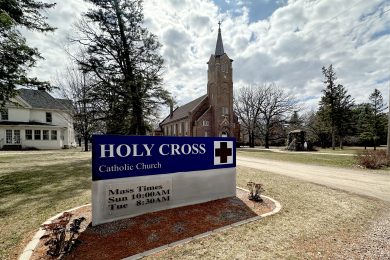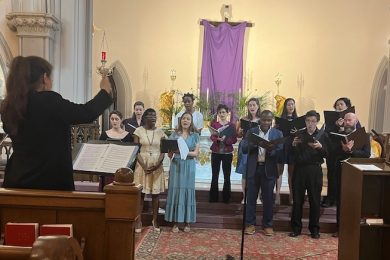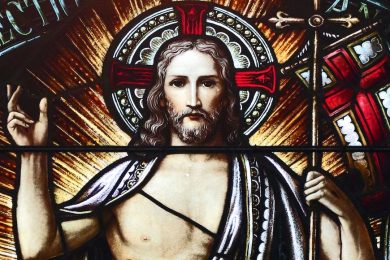You pray for the hungry. Then you feed them. That’s how prayer works.
Nothing says Lent more than the ancient practices of prayer, fasting and almsgiving. Catholics know these practices well, and we do our best to engage all of them at a higher level during the Lenten season.

Though seldom acknowledged, Catholic social teaching offers insights into these Lenten practices rooted in the thought of early Christian writers — the ones we commonly refer to as the Patristics.
On the topic of almsgiving, the first-century Didache (Teaching of the Twelve) urges future Christians to have a generous spirit when giving alms. The Didache tells us that we should never turn away the needy, share all of our possessions and not claim anything as our own. It all belongs to God. St. Basil of Caesarea (fourth century) noted that people who are selfish suffer a loss of memory: They forget they are stewards, not owners, of what they possess.
Small wonder that Catholic social teachings would encourage the same spirit of sharing some 15 centuries later. In his 1891 encyclical “Rerum Novarum,” Pope Leo XIII wrote that no one should consider outward possessions as one’s own, but as common to all, so as to share them without difficulty when others are in need (19). Later, Pope Paul VI would lend these patristic teachings on giving an even stronger moral tone. Private property, he wrote, is not an absolute and unconditional right. No one is justified in keeping for his exclusive use what he does not need when others lack necessities (“Populorum Progressio,” 23).
Helping the poor
Fasting is another Lenten practice that should bring benefits to others. Obviously, it is a practice that can help us develop self-discipline and learn to sacrifice. Certainly it can aid us in our developing relationship with God.
But fasting also should have positive results for persons other than ourselves. On this topic the second century Shepherd of Hermas urged early Christians to determine how much money their fasting would save and then give that money to “a widow, an orphan, or someone in need.”
In the fourth century, St. Augustine told worshipers that their fast should satisfy a poor person’s hunger.
Recently, Pope Francis quoted the fourth-century saint, John Chrysostom, in reminding Catholics that our Lenten fast must enrich others: “No matter how much time you spend fasting, no matter how much you sleep on a hard floor and eat ashes and sigh continually, if you do no good for others, you do nothing great.”
How prayer works
Prayer is the third major practice that Christians are expected to intensify during the Lenten season. This spiritual practice also must take into account the needs and well-being of our neighbor.
St. John Chrysostom drew a connection between our public prayer or worship and our care for the poor. “Do you really wish to pay homage to Christ’s body? Then do not neglect him when he is naked. At the same time that you honor him (in church) with hangings made of silk, do not ignore him outside when he perishes from cold and nakedness. For the one who said, ‘This is my body’ … also said ‘When I was hungry you gave me nothing to eat.’”
Catholic social teaching cautions that what we pray for is what we should work for. If we pray for the refugees moving through Europe, let us support efforts to make their lives more bearable. Catholic Relief Services (www.crs.org) might be a place to start.
We pray for those who are hungry and homeless. How might we change their conditions? Check out the Minnesota Catholic Conference. (www.mncc.org). Praying for better relations between Christians and Muslims? Support the efforts of the St. Cloud Interfaith Dialogue Group.
Pope Francis stated it so clearly and powerfully: You pray for the hungry. Then you feed them. That’s how prayer works.
Bernie Evans holds the Virgil Michel Ecumenical Chair in Rural Social Ministries at St. John’s University School of Theology/Seminary in Collegeville. Contact him at bevans@csbsju.edu.




















